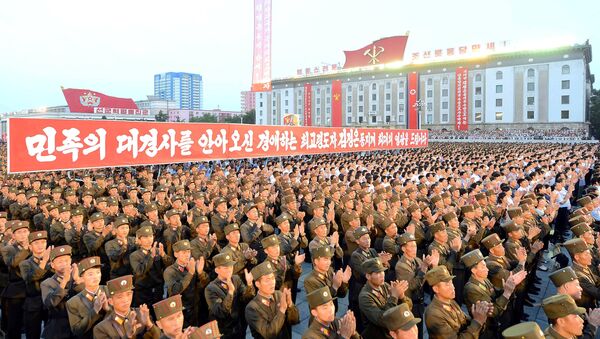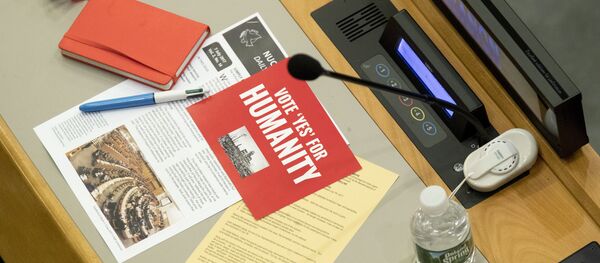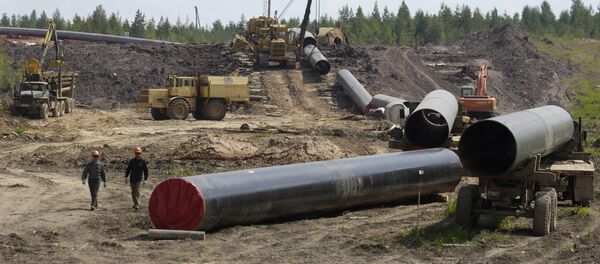Russia and China have called on North Korea, South Korea and the United States to sign up to a de-escalation plan drawn up in Beijing to lessen the tension in the Korean Peninsula.
Chinese President Xi Jinping and Russian President Vladimir Putin announced the initiative after a meeting in the Kremlin on Tuesday. They issued a joint statement that called on North Korea to voluntarily halt its testing of nuclear weapons and ballistic missiles, and on the US and South Korea to refrain from holding large-scale joint military drills.
"Parallel to this, the opposing sides should start negotiations and affirm general principles of their relations including the non-use of force, rejection of aggression and peaceful co-existence," the two countries stated.
Lin Shaowen, political analyst and member of the China Radio International(CRI) editorial team, told Radio Sputnik that the high level of tension in the Korean Peninsula prompted China and Russia to make the proposal.
"North Korea's ambassador to India has already indicated that it's willing to talk and South Korea and the United States have also indicated some sort of readiness to talk, provided that conditions are met," Shaowen said.
While South Korea's new President Moon Jae-in has halted further THAAD deployment pending an assessment of environment risks, two THAAD launchers were already deployed to South Korea under the administration of Park Geun-hye.
"The deal is there, although it was reached with the former President. It's difficult for him to call a complete reversal of this decision. He may take time to see if de-escalation is possible, then there will be fewer pretexts for Washington to go ahead with the deployment of the following facilities of the THAAD system."
Shaowen said that North Korean leader Kim Jong-un is pursuing the nuclear program because of concerns for national security.
"The tough talking actually means that it (North Korea) has serious concerns about threats; what it wants most is regime security or regime survival. So that's why it so often wants to have direct dialogue with the US, it sees that only the US has the capability to bring about regime change or to cause a regime collapse."
The THAAD anti-ballistic missile system has a radar range of 2000km, which makes it able to track movements far beyond North Korea, deep in Chinese and Russian territory. Shaowen compared the US deployment of THAAD in South Korea to its deployment of an anti-missile defense shield in Eastern Europe.
"That is the same as the deployment of anti-missile systems in Eastern European countries pressing onto the border of Russia. So, this is a similar move which is happening in the North Eastern part of Asia."




